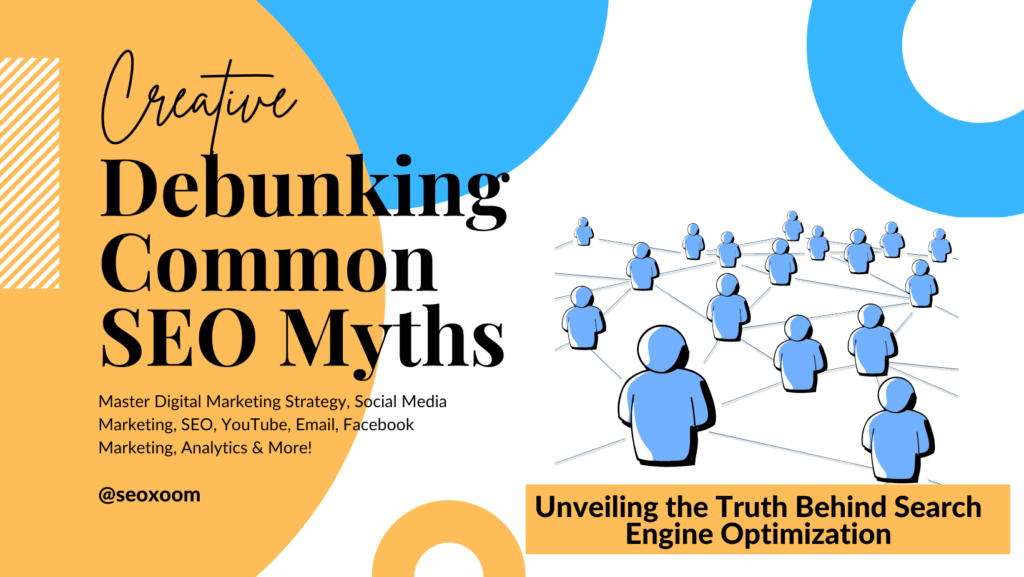In the ever-changing landscape of search engine optimization (SEO), misconceptions and myths tend to circulate, leading to confusion among website owners and marketers. It’s crucial to separate fact from fiction to build effective SEO strategies. In this article, we will debunk common SEO myths, providing accurate explanations backed by industry best practices and data. By gaining a clear understanding of these misconceptions, you can optimize your website with confidence and achieve better search engine rankings.
- Myth: Keyword Stuffing Improves Search Rankings One of the most persistent SEO myths is the belief that cramming your content with keywords will boost your search rankings. In reality, keyword stuffing is seen as a spammy practice by search engines and can harm your rankings. Instead, focus on creating high-quality, user-friendly content that incorporates keywords naturally and provides value to your audience.
- Myth: Meta Tags Are the Most Crucial Ranking Factor While meta tags, such as title tags and meta descriptions, are essential for conveying page content to search engines and users, they are not the sole determining factor for rankings. Search engines analyze numerous factors, including content relevance, user experience, backlinks, and website performance. Optimize your entire website, paying attention to other crucial elements like content quality, site structure, and mobile responsiveness.
- Myth: SEO Is a One-Time Effort Contrary to popular belief, SEO is an ongoing process that requires consistent effort. Algorithms evolve, user behaviors change, and competitors make improvements. To maintain and improve your rankings, regularly update your content, monitor keyword trends, build quality backlinks, and adapt your strategies to algorithm updates. Embrace SEO as a long-term commitment, and you’ll reap the rewards.
- Myth: Buying Links Boosts Rankings Many fall into the trap of believing that buying links will provide an immediate ranking boost. However, search engines have become adept at detecting link schemes, and engaging in such practices can result in penalties. Focus on building organic backlinks by creating valuable content that naturally attracts links from authoritative websites. Quality over quantity should be your guiding principle.
- Myth: Social Media Directly Impacts Search Rankings While social media indirectly influences SEO, there is no direct correlation between social media metrics and search rankings. However, a strong social media presence can drive traffic, increase brand visibility, and potentially attract natural backlinks, which indirectly benefit your SEO efforts. Integrate social media into your overall marketing strategy while understanding its limitations as a direct ranking factor.
- Myth: SEO is All About Tools SEO tools can be immensely helpful for keyword research, tracking rankings, and analyzing data. However, it’s crucial to understand that tools are only aids and not a substitute for comprehensive SEO strategies. Your understanding of SEO principles, content optimization, and user experience is what truly makes a difference. Utilize tools to gather insights, but rely on your expertise to apply the knowledge effectively.
Conclusion: By dispelling these common SEO myths and embracing accurate information, you can navigate the SEO landscape more effectively. Keyword stuffing, relying solely on meta tags, expecting instant results, buying links, overestimating social media’s direct impact, and solely relying on tools are misconceptions that hinder your SEO success. Stay informed, adapt to industry best practices, and focus on providing valuable content and exceptional user experiences. With these approaches, your website will be well-positioned to achieve higher search engine rankings and drive organic traffic.




